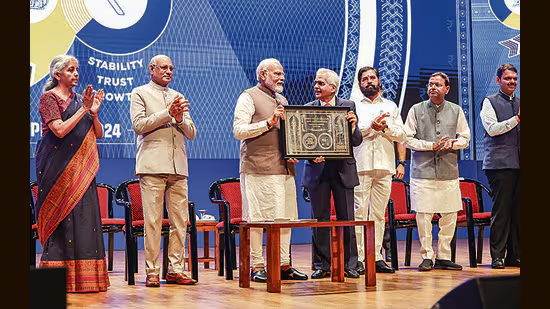PM Modi requested that the RBI develop a 10-year strategy to make the Indian rupee a globally “accessible and acceptable” currency and to address the credit needs of all segments of the country.
What are the biggest hurdles for India in making the rupee a global currency?
- Economic Stability: For international investors and currency users to have confidence in the Indian economy, it must exhibit constant stability and growth.
- Liquidity in Financial Market Development: These markets must be deep and liquid in order to handle significant quantities of foreign transactions denominated in INR.
- Capital Controls: India now restricts capital movements into and out of the country. These would need to be loosened in order to facilitate foreign trade and investment in INR.
- Legal and Regulatory Framework: To oversee the use of the INR in international transactions, effective legal and regulatory frameworks, including clearing and settlement systems and dispute resolution processes, are required.
- International/Investor Acceptance: Convincing other countries, firms, and individuals to accept the INR as a global currency will necessitate concerted diplomatic efforts, as well as steps to promote its usage in international trade and finance.
- Currency Convertibility: To become a worldwide currency, the INR must be fully convertible.
Indian efforts to make the rupee a global currency
- The RBI’s strategy for internationalisation. This roadmap suggests activities such as including the rupee into the Special Drawing Rights (SDR) basket, boosting its use in trade invoicing and settlement, enabling its usage in offshore markets, and establishing financial products denominated in rupees.
- Promoting the Use of Local Currencies for Cross-Border Transactions: India has entered into agreements with countries such as the UAE to encourage the use of local currencies, including the rupee, for cross-border transactions.
Next Steps:
- Requirements for Rupee transactions. To be considered an acceptable international currency, the Indian rupee must be freely utilised in transactions by both residents and non-residents, as well as a reserve currency for world trade.
- Need to Increase Exports: Indian trade must be promoted outside of Asia. All export and import operations must be invoiced in Indian rupees.
- Reducing Constraints: Legal and regulatory frameworks must be opened up so that investors can profit from their businesses without jeopardising security.
Source: https://www.hindustantimes.com/india-news/lets-make-a-global-currency-pm-to-rbi-101711996093588.html#:~:text=Prime%20Minister%20Narendra%20Modi%20on,burgeoning%20economy%2C%20particularly%20the%20youth.

